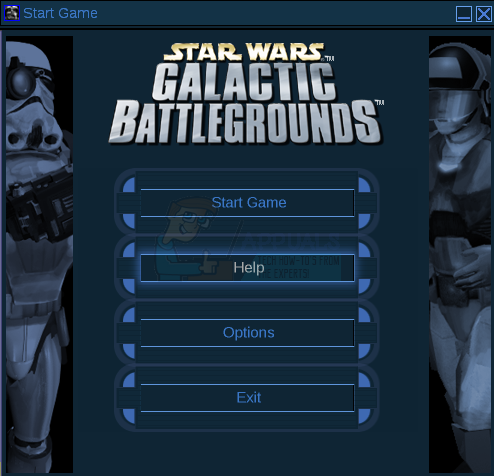The Best Linux Distros for Gaming [Max Performance]
When you think of gaming on a PC, you usually assume it runs Windows. Hearing about someone gaming on Linux might surprise you, but it’s entirely possible and increasingly popular. While Linux wasn’t initially designed for gaming, tech enthusiasts who value its freedom have found ways to make it work. This is where Linux gaming distros come in.

Linux distros, or distributions, are operating systems based on the Linux kernel with added components like installation programs and management tools. Each distro has unique strengths and capabilities. Since Linux is open-source, anyone can create or modify a distro, making it highly customizable for gaming and other uses.
Without further ado, let’s dive into some of the best Linux distros for gaming:
1. Nobara
↪ Pros
- Debloated OS
- Pre-installed GPU drivers
- Supports OpenRGB and OBS Studio
- Supports Blender
- Pre-installed WINE layers
- Pre-installed Proton and Steam
- Optimized for streaming
↪ Cons
- Slow updates
- Can be a bit buggy for some users
Nobara is a modified version of Fedora, which itself is a Linux distro. While Fedora is more suited for general everyday use, Nobara is primarily focused on gaming. By debloating (removing unwanted system apps) Fedora, implementing WINE layers, including GPU drivers for both AMD and NVIDIA out-of-the-box, pre-installed Steam and Proton, and much more.
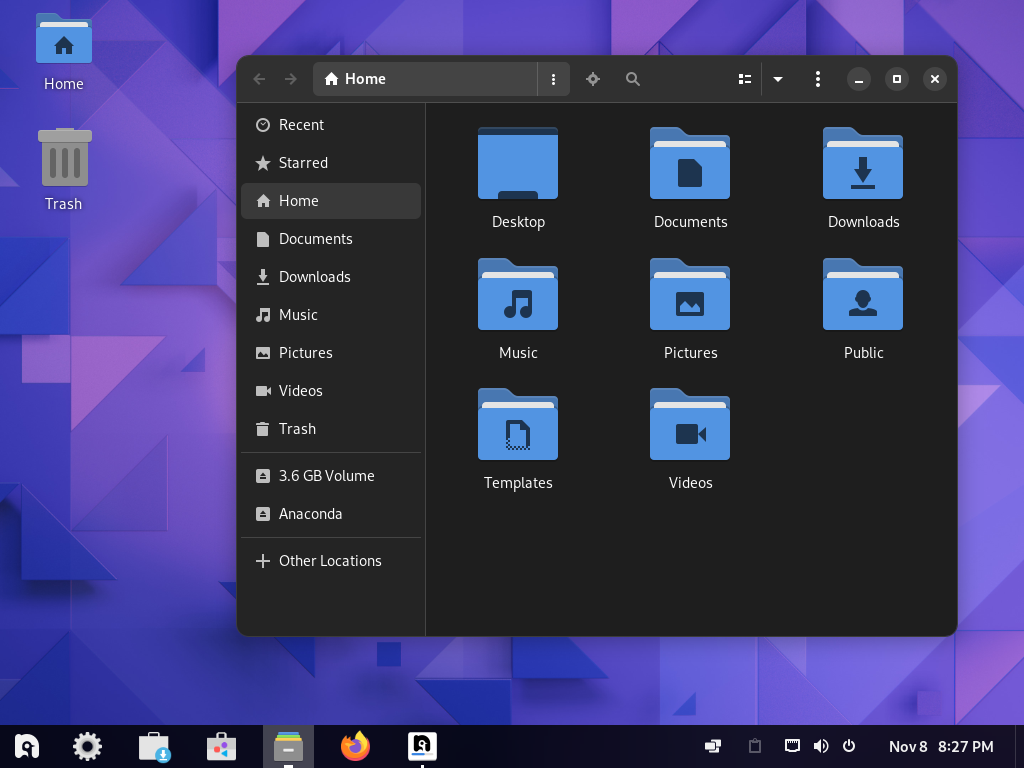
Although it may be relatively new, Nobara is definitely the best Linux distro for gaming. It comes with all the essentials pre-installed to get you started with gaming, minus the usual bloatware, offering enhanced performance compared to most distros. It also supports OBS Studio and OpenRGB for the best gaming experience possible.
2. Pop!_OS
The Most Versatile Linux Gaming Distro
Pros
- Separate ISO with NVIDIA GPU drivers
- Auto-update installer
- Useful for developers and casual users apart from gamers
- Easy Steam installation
- User-friendly interface
- Stable
- Pre-installed drivers and necessary software
- Regular updates and support
- Compatibility with most everyday applications
Cons
- GNOME can be problematic for some users
- Bloatware
- Limited and sometimes unclear installation options
- Lack of updates means losing support for drivers and other programs
Pop!_OS is derived from Ubuntu, the most prominent Linux distro. It aims to preserve the best aspects of Ubuntu while catering to diverse users, including developers, gamers, and coders. Pop!_OS boasts a sleek user interface and frequent updates to ensure you stay up-to-date with the latest advancements.
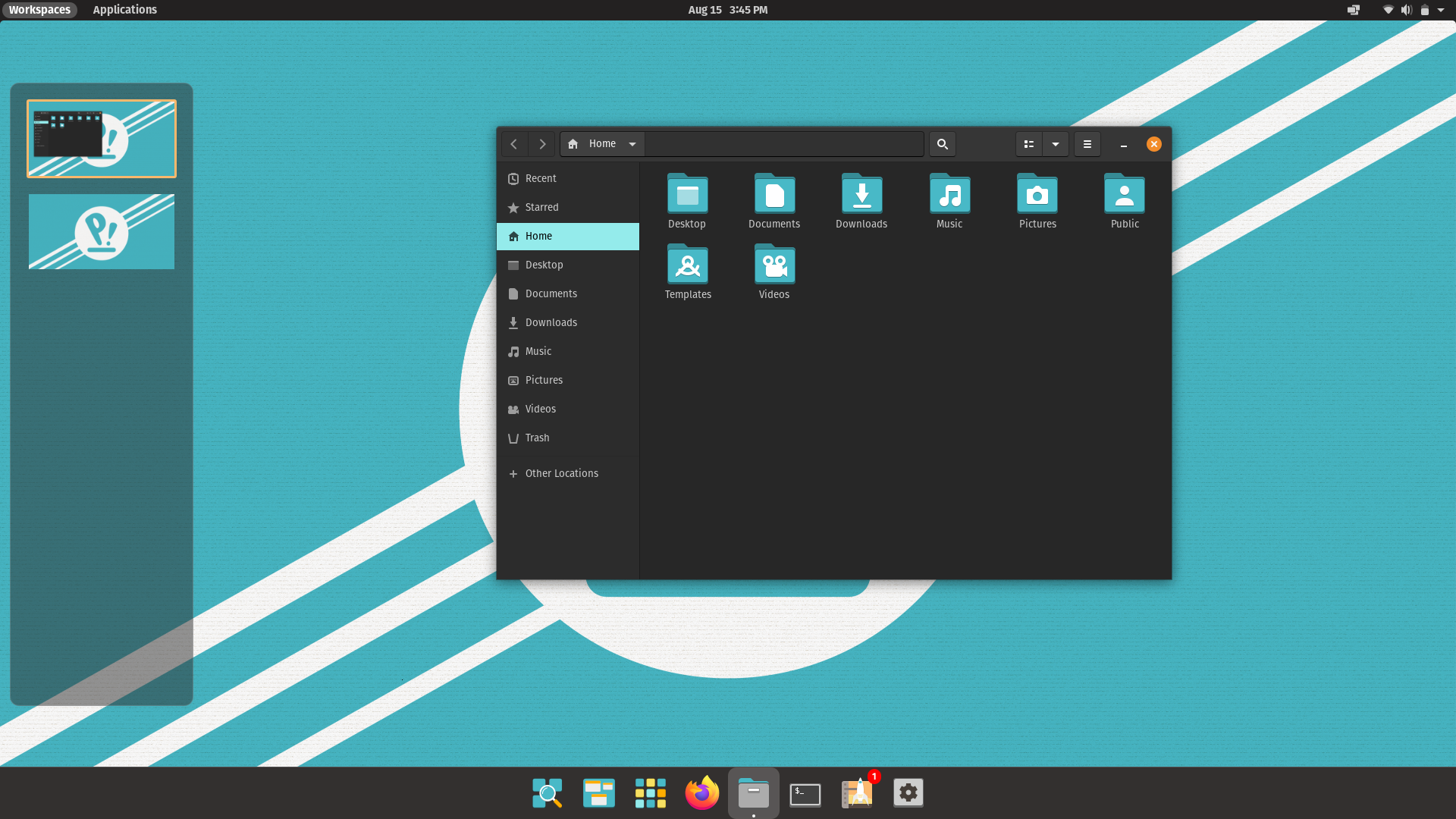
In most distros, since AMD GPU drivers are included by default in the kernel, you usually need to install NVIDIA drivers manually. In Pop!_OS, a separate ISO is provided with pre-installed NVIDIA drivers, making it the most versatile gaming distro.
However, GNOME’s interface is troublesome for some, and the limited installation options might require extra consideration.
3. Fedora
The Most Up-to-Date Linux Gaming Distro
Pros
- Useful for developers and casual users apart from gamers
- Easy Steam and other apps installation
- User-friendly interface
- Simple to work with
- Regular updates and support
- Wide custom installation options
- Compatible with most daily applications
Cons
- NVIDIA driver installation can be challenging
- Requires substantial setup
- Frequent updates may cause instability
- Unsuitable for older hardware
Many Linux veterans recommend Fedora as a fantastic starter distro. With over two decades in circulation, it has multiple spins (distros officially based on Fedora). Fedora’s long-standing reputation for reliability, ease of use, and compatibility makes it a stellar choice for beginners and experts alike.
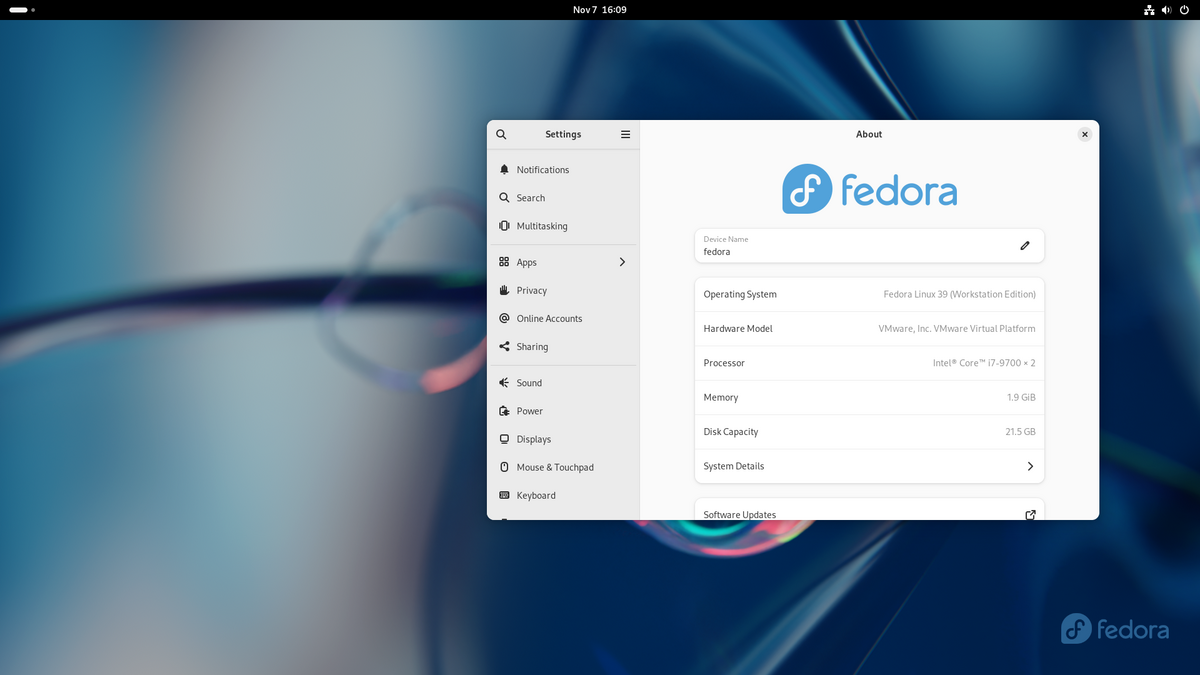
However, Fedora isn’t without its quirks. Its setup process can be hefty, and frequent updates may lead to occasional instability. While GNOME may contribute to this issue, it can easily be swapped out, thanks to numerous installation choices. On the whole, Fedora is a solid choice for gaming if equipped with modern hardware.
4. Garuda
The Most Stylish Linux Gaming Distro
Pros
- Stunning aesthetic
- Useful for developers and casual users apart from gamers
- Easy Steam and other apps installation
- Emulation support
- Pre-installed necessary software
- User-friendly interface
- Beginner-friendly
- Regular updates and support
- Wide array of installation options
- Highly customizable interface
Cons
- Very unstable
- Includes a fair amount of bloatware
- Customization can be overwhelming
- Toxic community
- Not advised for NVIDIA GPUs
- Unsuitable for older hardware
Garuda is a rolling release distro, meaning it is continuously updated, which makes it unstable. Despite this, Garuda remains one of the most visually appealing distros, with its striking designs and ample customization options.
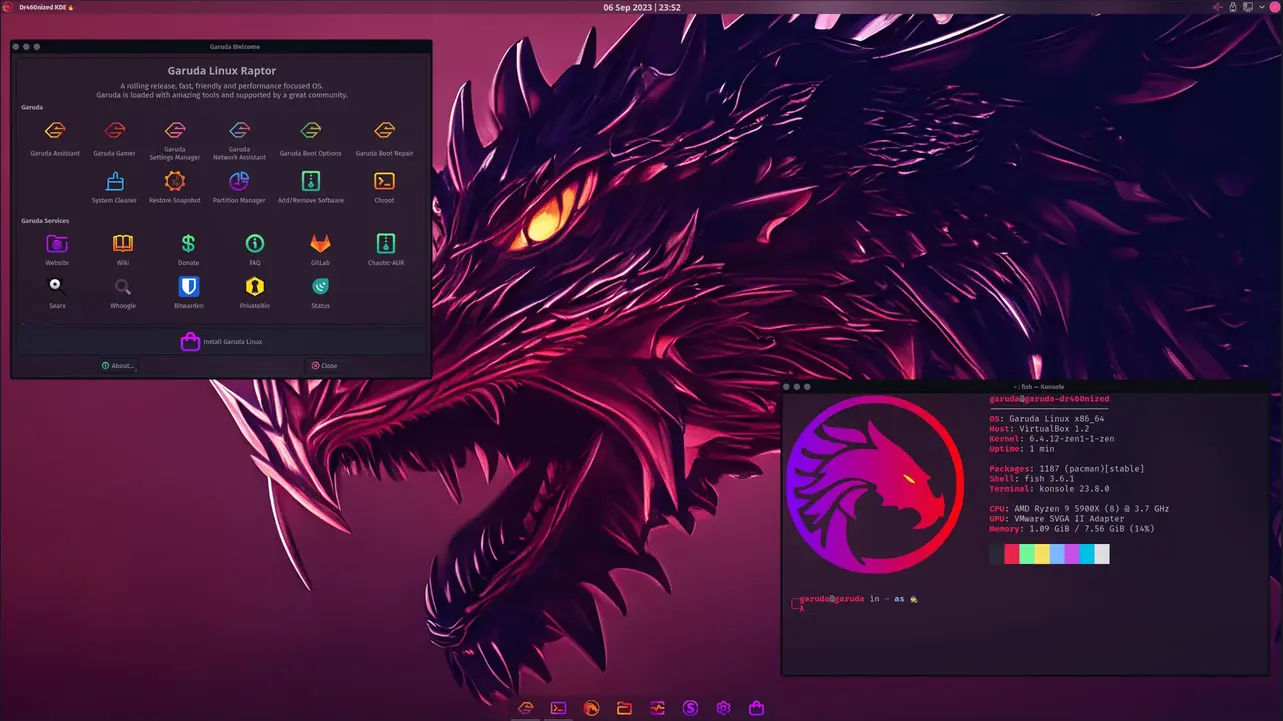
Garuda is tailored for gaming, allowing easy installation of a wide range of gaming software and offering emulation support. Unfortunately, due to its instability—mostly causing minor breaks—it’s not recommended for NVIDIA GPUs. Additionally, relying on a hostile community for solutions is not a wise move, especially with Garuda.
5. Ubuntu
The Most Stable Linux Gaming Distro
Pros
- Highly stable
- Excellent hardware support
- Appeals to developers and casual users alongside gamers
- Beginner-friendly
- Simple app installation
- User-friendly interface
- Frequent updates and support
- Highly secure against malware
Cons
- New features may be delayed compared to other distros
- Gaming prerequisites require manual installation
- NVIDIA GPU drivers need manual installation
- GNOME can be troublesome for some users
No list of Linux distros would be complete without Ubuntu, perhaps the most renowned and widely adopted Linux distro. Ubuntu, seen as the face of Linux, is the go-to choice for introducing newcomers to the Linux ecosystem. It stands out for its unmatched stability, even if it results in slower incorporation of new features when compared to other distros.
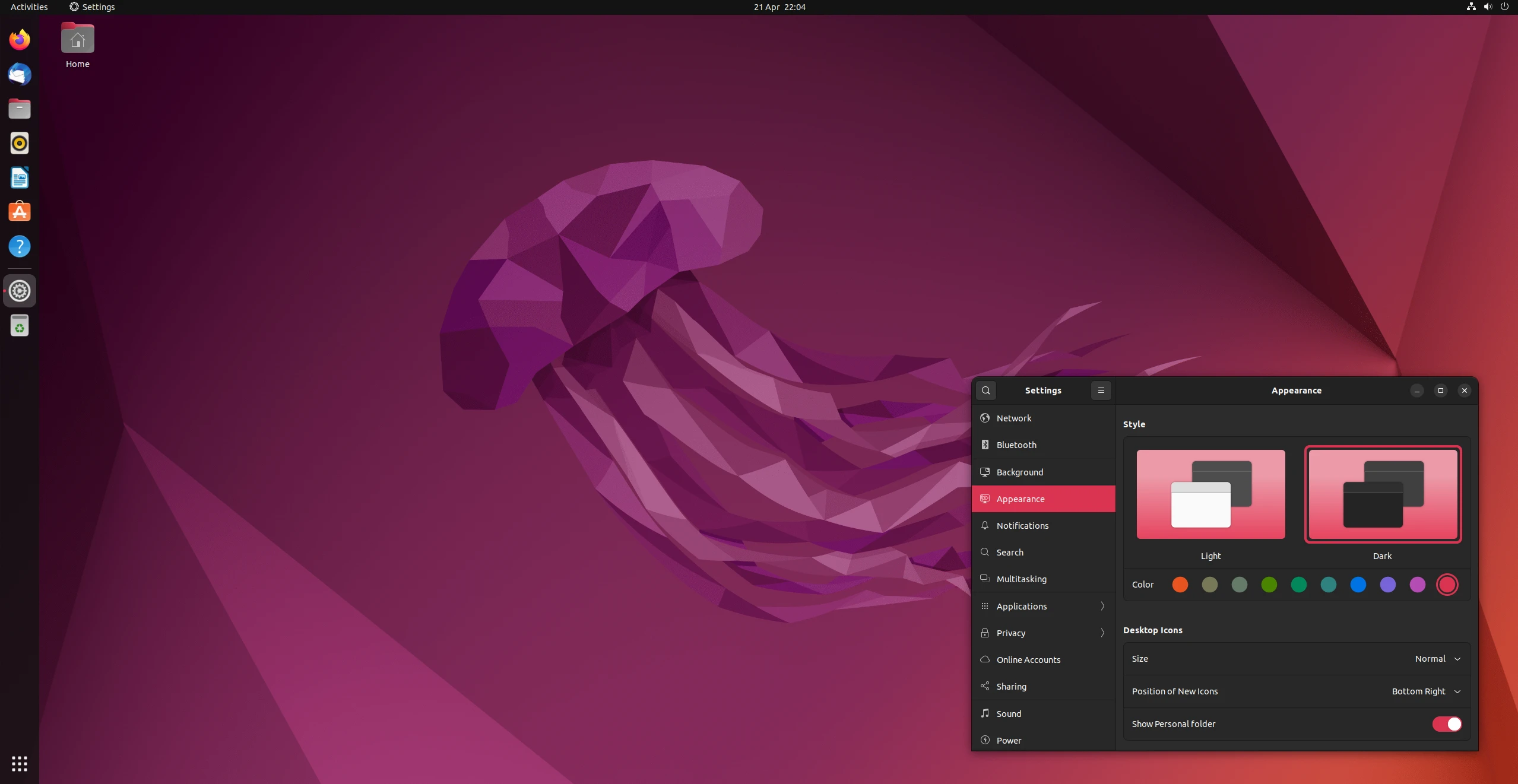
Despite its stability, Ubuntu doesn’t entirely break away from Linux’s do-it-yourself ethos. Users need to manually install software like WINE, Proton, and if applicable, NVIDIA graphics drivers. With these preparations completed, however, Ubuntu offers a smooth experience and is highly user-friendly. It’s also extremely secure and even doubles as a server platform, frequently used by enterprises for this very reason.
FAQs
Linux distros are operating systems that include the Linux kernel along with various essential programs like package installers, file management apps, etc. They are designed to offer users full control over their system, embodying Linux’s philosophy. They are fully open-source.
Many Linux experts agree there’s no single “best” distro; only the ones you prefer. However, we find Nobara to be the best gaming distro as it provides all essentials for Linux gaming pre-installed, allowing you to dive into gaming immediately.
 Reviewed by
Reviewed by 
